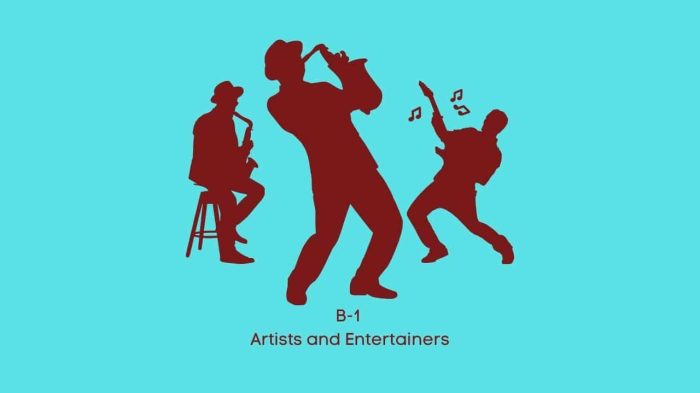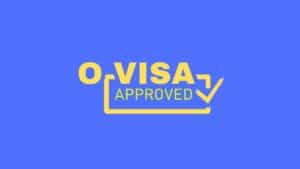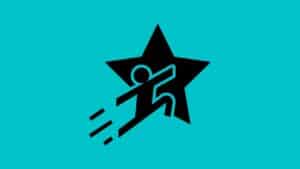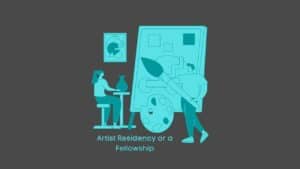Introduction
A B1 visa, or Temporary Business Visitor visa, is generally issued if the applicant has to participate in commercial or professional business activity in the US, which is temporary. In certain situations, a B1 visa could be used by the artists and entertainers to visit the US temporarily. It could benefit artists and entertainers to use a B1 visa since there is no requirement to petition USCIS. This helps them get the visa within less time, and the cost of getting a visa also decreases. This article discusses the B1 visa and its benefits to artists and entertainers, its procedure, and the documents required to get one.
What is a B-1 visa?
A B1 visa, also known as a Temporary Business Visitor visa, includes a temporary trip to the US to attend a commercial or professional business activity, such as consultation with business associates, attending a scientific, educational, professional, or business convention or conference; or to settle a matter related to an estate or to negotiate a contract. It is beneficial to note that you will not be allowed to study, be employed, or conduct paid professional performances in front of an audience if you are traveling to the US using a B1 visa.
To qualify for a B1 visa, you must demonstrate that the business you will deal with while in the US is legitimate and that you will be in the US for a limited period, after which you will return to your home country. You also need to demonstrate that you have sufficient funds to cover the trip’s expenses and that any law or order does not bar your entry into the US.
To file for a B1 visa, you must file Form DS-160 (Application for Nonimmigrant Visa), using the Department of State’s Consular Electronic Application Center (CEAC) which will cost you $160 . You can stay in the US for up to six months with a B1 visa. You can extend your stay up to a maximum period of one year using Form I-539 (Application to Extend/Change Nonimmigrant Status). Your dependents will not be allowed to apply for a dependent visa, and they must file a separate B2 visa application.
B1 Visa and its benefits to artists and entertainers
Except in limited and specific instances, the B-1 visa is typically not suited for professional musicians and entertainers seeking to enter the US to perform services temporarily. There are certain circumstances when an artist or an entertainer can benefit from a B1 visa. For example, when an artist’s country sponsors them to participate in an international competition or cultural program in the US in front of a non-paying audience, there is no remuneration other than winning amount and expenses incurred by the US organizer.
A musician may use the B1 visa to use recording facilities available in the US; however, the recording will be sold outside the US, and the visa holders will hold no public performances.
An artist may travel to the US using a B1 visa to paint or sculpt, provided they have not signed a contract with a US employer and must not intend to sell such art in the US regularly.
A photographer may be allowed to travel the US using a B1 visa for taking photographs subject to the condition that they will not receive any income from a US source.
Procedure for applying
The following steps are involved in applying for a B1 visa if you are applying from outside of the US.
- Complete the online visa application- you need to file Form DS-160 (Nonimmigrant Visa Application) online.
- An interview will be scheduled in the US Embassy or Consulate in your country.
- You have to prepare for your interview. You must submit the fees applicable on your application prior to your date of interview.
- Attend your interview with the embassy or consular officer, which will determine your qualification to receive the visa.
- If your visa is accepted, you can travel to the US on a B-1 visa.
An issued Visa does not ensure your entry into the US; you may be denied entry into the US by the Department of Homeland Security officials, US Customs and Border Protection. You will only be allowed to enter the US if the US Customs and Border Protection officials provide a stamp on your Form I-94 (Arrival/Departure Record).
Documents required
First, you need to fill out Form DS-160 (Nonimmigrant Visa Application) online visa application and keep the print of the form confirmation page. Along with the confirmation page of Form DS-160 (Nonimmigrant Visa Application), you will need the following documents:
- A valid passport must be six months valid beyond your planned stay in the US.
- Photograph as per USCIS requirements
- Receipt of the Application fee payment in case it is to be submitted before your interview.
Additionally, some documents may be required to be submitted, such as evidence to prove the purpose of your trip, your intention to return to your home country after your trip, or your ability to cover the expenses of your journey. For this, you could use evidence indicating your employment or family ties to satisfy the question of financial stability and that you will return to your country after the trip.
Conclusion
If you are an artist or an entertainer coming to the US on a B1 visa may not be the best option, it can be used if you plan to travel to the US for a brief visit, such as to participate in a cultural event program. Also, the B1 visa application processing time is shorter and cheaper than any other visa options available to the artists and entertainers visiting the US.
But at the same time, it is important to keep in mind the limitations to the B1 visa, such as limitations imposed on the circumstances under which it will be granted to artists and entertainers and employment restrictions. Minor infractions of a B1 nonimmigrant status might have long-term immigration ramifications. As a result, it is prudent to get legal advice whenever one is unsure whether a certain activity or occurrence comes within the scope of allowed activities under B status.
If you face any trouble, you can contact Sethi and Mazaheri law firm. Our experienced immigration attorneys will suggest the best course of action for you and help you in your visa case.








 by Prozco®
by Prozco®